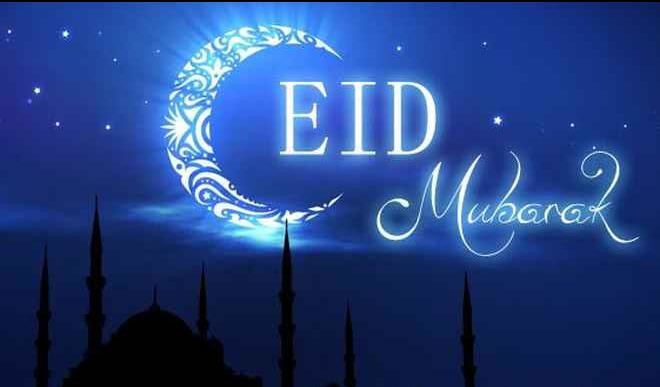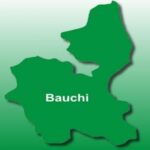The sighting of the crescent of Shawwal terminates Ramadan fast, and ushers Muslims into the festive period of Eid ul-Fitr, otherwise called Small Sallah Nigeria. Following the announcement by His Eminence the Sultan of Sokoto and President-General of the Supreme Council for Islamic Affairs which directed Muslims in Nigeria to search for the new moon yesterday, Friday being 29 day of Ramadan, there were speculations that today, Saturday, May 23, 2020 would be Sallah day. On this day, nothing is more profiting for a Muslim than to give gratitude to Allah (SWT) who made it possible for them to observe the Ramadan fast with ample time devoted to worshipping Allah and repenting from his sins. Our prayer in this Ramadan closes with “All gratitude is due to Allah”.
Anas bn Malik (RA) reports that the Prophet (SAW) said: “The Ramadan fast of believing servants of Allah (SWT) would hang between the heavens and the earth until he pays the Zakat ul-fitr. When he gives it out, Allah (SWT) would grant it two wings to fly to the seventh heaven where it would remain until the owner comes for it”. This underscores the importance of Zakat ul-fitr in Islam. Zakat ul-fitr is a Sunnah that is compulsory on every Muslim, young and old, male and female, free-born as well as slave. A Muslim’s Zakat ul-fitr is given out by the person responsible for his/her sustenance. A man gives the Zakat ul-fitr of his wives, children, and every other person under his care. A man would also give the Zakat ul-fitr of his dependents who may have travelled.
Abdullahi bn Umar (RA) reports that the Prophet (SAW) fixed the Sa’a of dates or Sa’a of barley as the quantity to be given as Zakat ul-fitr at the end of Ramadan fast. In other words, Zakat ul-fitr is given from the staple food item of one’s community. It could be rice, maize, millet, wheat, or similar grains or cereals. It could also be beans or ground-nut where such is the staple food. Malik relates that Abdullahi bn Umar (RA) would always pay the Zakat ul-fitr in dates, except once, when he paid it in barley. The proportion (of the raw food item) to be given out as Zakat ul-fitr per head is four Sa’a (cubic) measures of grains or cereals; using the Sa’a of the Prophet (SAW). Where the Sa’a (cubic) is not practically available, the two palms of a fully-grown man put together and filled with grains or cereals would equal a full measure of the Prophetic Sa’a.
Zakat ul-fitr could be paid a day or two before the day of Fitr (final breaking of Ramadan fast). It is Sunnah of the Prophet (SAW) that the Zakat ul-fitr is given out, latest, before going for the Eid prayers on the day of Eid ul-Fitr. It is reported that Abdullahi bn Umar (RA) used to pay the Zakat ul-fitr two or three days before the day of Eid ul-Fitr. If a Muslim were unable to pay the Zakat ul-fitr before leaving his house for the Eid prayers due to penury, he would still pay it whenever he finds the means to pay it. Zakat ul-fitr has no waiver or substitute. It is obligatory on every Muslim. Apart from paying the Zakat ul-fitr before going for the Eid prayers, every Muslim is enjoined to break his fast in the morning of the Eid day. It is expected that everyone who fasted during Ramadan should break the fast by eating or drinking in the morning of the Fitr day. The refusal to eat or drink after daybreak on the Eid day violates provisions of the prophetic practice. To do that is to seek an extension the Ramadan beyond and against Allah’s will.
The Eid is a period for us to realize that the world (and everything in it) is mortal and like “time” would definitely come to pass. Believers should remember that this material world is full of things which the eyes of men covet and that only acts of righteousness and constant repentance from sins can lead to salvation. Those who doubt the vulnerability of this deceitful world should ask of Prophet Sulaiman (AS) and the efficacies of his commands over mankind and Jinn. Today, he is no more. Where is Dhul-Qarnayn who had everything called wealth on earth? Today, he is no more. Where is Namruzu bn Kan’an (upon whom be Allah’s cause) who was so strong and influential that he became the first “heartless oppressor” on earth? Today, he is no more. Where, also, are the righteous men including companions of the Prophet (SAW)? They have also passed on.
Sequel to the partial or full lockdown protocols that are still in force in various states of the federation in order to contain the spread of Coronavirus, Muslims are strongly advised to abide by all restriction measures put in place during and after the Eid period. They are all for our safety. But if the pandemic in the past three months has robbed Muslims of some of their religious rights including the right to observe prayers in a congregation as well as the privilege to perform Umrah (lesser hajj), there should be nothing to worry about if a ban is placed on the Eid congregational prayer. Similarly, if Islam prohibits a worshipper who smells garlic (which isn’t a contagious virus) from joining congregational prayers, there’s no reason therefore to see the ban on Eid as a denial of any rights. Muslim scholars need to do more to educate their followers.
Due to the unforeseen socio-economic hardships occasioned by COVID-19, it may not be easy for middle and low-income earners to provide the usual new dresses for family members on the occasion of this year’s Sallah. Even the special meal normally prepared to celebrate the end of Ramadan may fall below our natural expectations. The characteristic celebration that used to accompany Sallah may also be missing this year. For many Muslims in Nigeria, it would be Sallah devoid of Eid or festivity; precisely owing to the enforcement of social distancing rules. Let us appreciate the situation we, by Allah’s will, find ourselves and put hope in what the future holds for us.
The best response expected from a Muslim is to accept everything about COVID-19 in good faith and then invent friendly approaches for coping with the pandemic until Allah completely redeems us from it. Lockdowns, restriction measures and the wearing of nose mask should not mar the joyful mood that is characteristic of the Eid festival. Let us wear smiles on our faces. The Eid is a time for celebrating the favours bestowed on us Allah (SWT). Let us convince our wives and children to equally believe that our present circumstances have been pre-destined to occur the way are happening. Let us limit our visits and contacts during this Sallah period except when such becomes necessary. May Allah (SWT) accept our Ramadan fast and ease us out of all our current predicaments, amin. Happy Sallah!

 Join Daily Trust WhatsApp Community For Quick Access To News and Happenings Around You.
Join Daily Trust WhatsApp Community For Quick Access To News and Happenings Around You.


